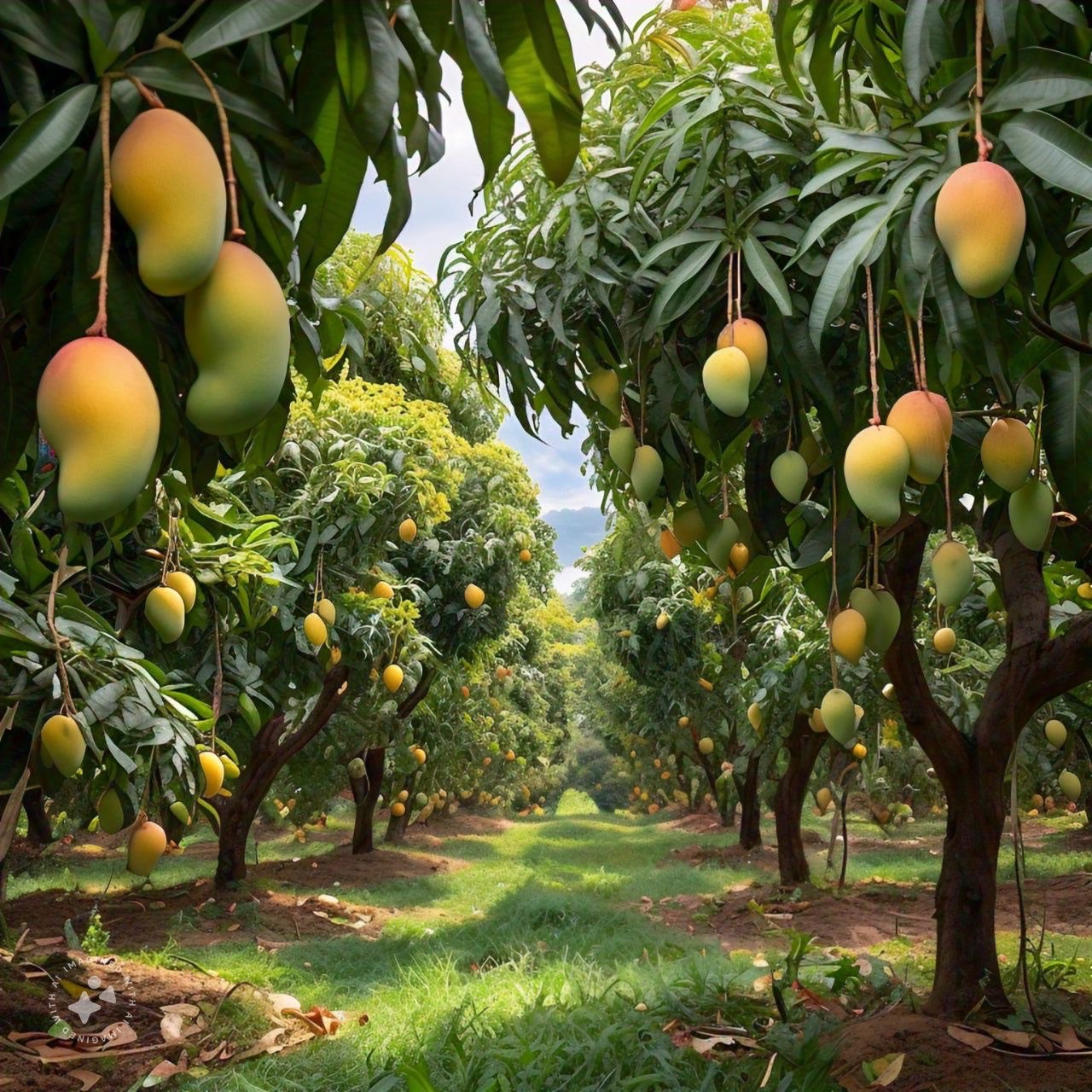When I was a child, every late summer, we would enjoy a basket of mangoes, a luxury in an otherwise austere life. This was our share from a few acres of ancestral property, after all the commercial crop was harvested and sold. Two varieties, mostly – a stringy, fibrous mango, the ones in which you bit off the skin and sucked the juice before you ate the pulp. Probably Kesari, but I don’t know. The other was the larger, firmer Banganapally or Badami, this I am sure of, because that’s what my grandmother used to call it.
But this post isn’t about the mangoes. It’s about the man who traveled overnight from the village (in Madurai district, Tamil Nadu) to get them to us. Let’s call him Mali.
I must have been six or seven when I saw him first. It was late evening when he arrived, banged on our gate and called out “amma”. I remember him being tall, well-built, dark, white-haired with a rather large basket on his shoulder. I opened the gate, and my grandmother welcomed him with a familiarity that was unfamiliar to me “Oh, Mali. Vaa, vaa, ulle vaa…” He went around to the back door and put his luggage, the basket, at the doorstep. Someone took it inside, because I remember that he never stepped inside the house on that visit. At night, he slept in the courtyard, on a mat, with a wooden brick for a pillow. My grandmother seemed to know everything about him, and they conversed quite a bit about things I didn’t quite grasp. He stayed for a couple of days before he returned to the village.
Each year Mali brought us around a hundred mangoes. We started looking forward to the mangoes, which would be the rare pleasure in an otherwise depressing time, the end of the summer vacation and the start to a new school year. His later visits are fresher in the memory; and we kids also started having conversations at home about him, the property, their way of life and such things. He was persuaded to sit inside the house, watch some TV if he wanted, or eat from a plate. He would do all that, but he never sat on a chair. At night, he slept inside the kitchen work area instead of the courtyard. He started using the outhouse toilet too.
On one particular visit, we noticed that he was carrying a new shirt we’d gifted him on his shoulder instead of wearing it because he didn’t know how to button the shirt. Like a man dressing his son, my father helped him put on the shirt, and taught him how to fasten the buttons. I remember Mali being extremely uncomfortable. At that time, I thought he was embarrassed about not knowing how to wear a shirt. Later I learnt that we was supposedly an “untouchable” and father had stepped across an imaginary line.
Mali was a landless laborer, a condition slightly better than a medieval slave. His family had been working in the ancestral property, perhaps for generations. After his death, his son started bringing us the mangoes. Later, he stopped because of his ill-health, and mostly visited us on social occasions or for medical treatment. Unlike Mali, his son knew to read and write, and had been to school for a few years. He seemed much less conscious of his caste; he would hesitate only a little before shaking hands.
But the yearly treat of free mangoes was too good to last, and the supply gradually stopped. But it wasn’t as if we’d lost the property or that the orchard was cut down. There simply wasn’t anyone left to bring it to us. There were no more landless laborers attached to the property. Mali’s grandchildren were no longer laborers – they had educated themselves and one of them completed his engineering diploma from a government college. They found jobs in bigger towns, and had left behind their poverty and years of almost bonded, and very likely unpaid, labor.
They were beneficiaries of the Tamil Nadu government’s free primary education system and mid-day lunch scheme and later on, reservations that helped them get the opportunities to study in professional and graduate colleges. A generation had freed itself, and future generations would never have to go back to the years of manual labor, which gave them so little. Their children will never have to carry a load of mangoes to a distant town, so that someone else could enjoy the fruit of their labor without as much as lifting a finger to earn it.
I am sure caste-based reservation isn’t without its problems, but then nothing is. Hundreds of years of inequality cannot be wiped off in a generation or two, but reservation is a good start. It isn’t perfect, but if you look around, there are thousands of Malis, their children and their children, who have benefited from reservation. It doesn’t ask much of us – I have always been a general category applicant, and I never felt any restrictions. For someone who was considered not worthy of being touched, there wouldn’t have been any other way or method to progress to a better life, a life of dignity, hope, and possibly prosperity. There are times when you make that leap of faith.
A basket of mangoes seems too little a price to pay.

Leave a Reply